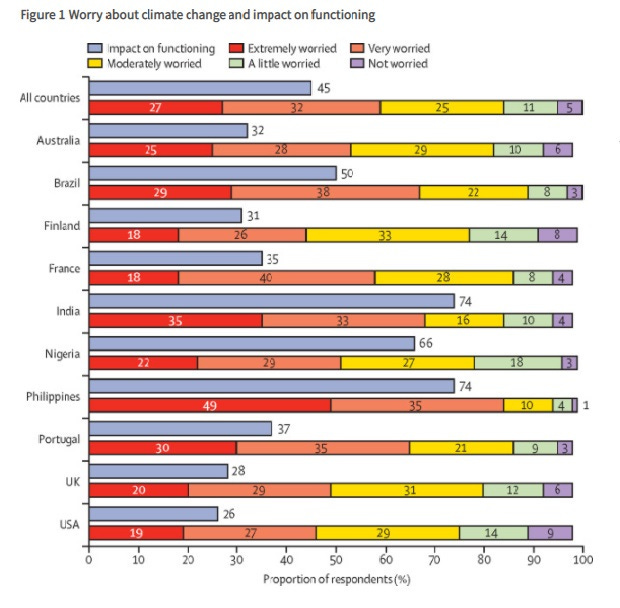☀ Climate change won't destroy the global economy
Also: A Quick Q&A on predicting AI through financial markets with … Trevor Chow
Look: Not only do I believe that “climate anxiety” is a real mental condition, I think it would be surprising if it weren’t. We have subjected ourselves, after all, to decades of climate scare stories from the media, Hollywood, and scientists. No wonder so many of us view climate change as a path to human extinction rather than, say … an unintended and negative consequence of economic and technological progress that we can ameliorate through more economic and technological progress.
You might recall a 2022 survey of 10,000 people across 10 countries that highlighted widespread climate anxiety, with 75 percent saying the "future is frightening" and 56 percent believing "humanity is doomed." (In the US, these figures were 71 percent and 48 percent, respectively.) As The New York Times reported, climate concerns have led to the emergence of climate psychology, treating "eco-anxiety." Initially met with skepticism, the field is growing rapidly, with online directories of climate-aware therapists and support groups becoming more common. Apparently, some individuals experience panic episodes or develop phobias related to their lifestyle's environmental impact.
I’m not a psychologist or therapist. All I can do is present reality through the best data-driven analysis I can find. And I think the new NBER working paper “How Much Will Global Warming Cool Global Growth?” by Ishan B. Nath (SF Fed), Valerie A. Ramey (Hoover Institution), and Peter J. Klenow (Stanford) meets that standard. This paper tackles the following question using a mashup of economic theory, historical data analysis from 1960–2019 across multiple countries, and advanced statistical techniques: Will rising temperatures primarily result in a one-time reduction in GDP per capita or will they cause a persistent slowdown in the long-term growth rate of GDP per capita?
Determining whether a permanent rise in temperature decreases the level of GDP or decreases the growth rate of GDP in affected countries — a shock versus a bleeding wound — is important for two reasons. First, the answer dramatically affects projections of the long-term economic consequences of climate change, with estimates varying by an order of magnitude depending on the answer. Second, the answer significantly influences (or should influence) climate policy decisions. Level effects might weaken the case for aggressive action. Permanent growth rate effects, on the other hand, would tend to justify justify immediate and dramatic measures due to the compounding nature of even small changes in growth rates over time.
Keep reading with a 7-day free trial
Subscribe to Faster, Please! to keep reading this post and get 7 days of free access to the full post archives.



